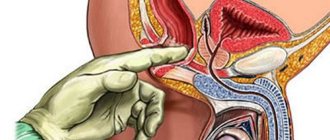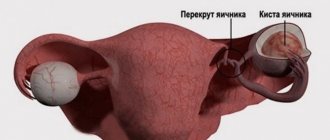As science develops, the list of medical specialties is gradually expanding - new, highly specialized areas are emerging. Thus, patients often ask the question of who a reproductive specialist is and what he does. A reproductive specialist is a specialist whose area of expertise includes the health of the human reproductive system, which is responsible for reproduction. Reproductology is a branch of medicine that is often a branch of obstetrics and gynecology. Typically, gynecologists undergo professional retraining and become reproductive specialists. Today we’ll talk in detail about reproductology and its capabilities and when you should see a doctor in this specialty.
What does a reproductive doctor do?
Couples are interested in what a fertility specialist does. This doctor diagnoses the condition of the reproductive system of women and men, and then treats the identified abnormalities. If traditional methods are ineffective for achieving pregnancy, assisted reproductive technologies can be used.
The main pathologies that are within the competence of a doctor of this specialty are:
- infertility of various origins;
- miscarriage.
The doctor identifies the possible cause of the disorders, conducts a comprehensive diagnosis of the state of the reproductive system and draws up a personalized treatment strategy. In addition, the fertility specialist also helps the couple determine the optimal time for conception and, if necessary, selects the most suitable method of contraception.
In other words, who is this fertility doctor? This is a family planning doctor. The World Health Organization says that family planning is all activities that are aimed at both protecting against unwanted pregnancy and realizing the desire to have your own child, as well as monitoring the intervals between births. The task of a reproductive specialist is to help a couple become pregnant on time and carry the child to full term, which is calculated from the moment of completion of 37 weeks.
What symptoms do you consult a fertility specialist with?
The main reason for visiting a fertility specialist is the inability to conceive within 1 year, or repeated pregnancy losses. There is no point in trying to assess the state of the breeding system on your own. Diseases of the reproductive system do not always occur with clinical manifestations.
However, the “bell signals” are:
- menstrual irregularities, it should be taken into account that the normal cycle length is from 24 to 37 days, and the duration of menstrual flow should not exceed 7 days;
- the appearance of spotting outside of menstruation;
- pain during menstruation, in the lower abdomen or during sexual intercourse;
- the presence of discharge from the mammary glands (spontaneous or appearing when pressing on the isola);
- changed color or consistency of discharge from the genital tract;
- decreased sexual desire and arousal.
In men, the following conditions may indicate possible disorders in the reproductive system:
- the presence of dilated veins in the groin area;
- absence of one or both testicles in the scrotum;
- scrotal asymmetry, which is often associated with hydrocele;
- sexual disorders - premature ejaculation, incomplete erection, lack of sexual release;
- pain in the scrotum, groin and perineum;
- purulent, mucous or bloody discharge from the urethral canal;
- enlargement of the mammary glands;
- pathological spermogram indicators.
Where to get training
In addition to higher education, there are a number of short-term training on the market, usually lasting from a week to a year.
The Medical University of Innovation and Development invites you to take distance courses for retraining or advanced training in the field of “Obstetrics and Gynecology” to obtain a diploma or state certificate. Training lasts from 16 to 2700 hours, depending on the program and your level of training.
The Institute of Professional Education "IPO" invites you to take distance courses in the field of "Midwifery" (there are options 256, 512 and 1024 academic hours) to receive a diploma or state-issued certificate. We have trained more than 8,000 graduates from almost 200 cities. You can undergo external training and receive interest-free installments.
What kind of research does a reproductive specialist do?
What kind of doctor is a reproductive specialist? This is the kind of doctor who is not limited only to the data of the conversation and the initial examination. To establish the correct diagnosis and identify the cause of existing disorders, a comprehensive diagnosis is carried out, which includes a laboratory and instrumental stage.
Among the laboratory tests, the most significant are for both men and women:
- general clinical analysis of blood and urine;
- biochemical study of plasma;
- determination of ferritin concentration (anemia is one of the causes of fertility disorders);
- microscopic examination of genital secretions;
- PCR diagnostics of urogenital infections;
- assessment of the body's hormonal profile;
- analysis to detect antisperm antibodies that damage male reproductive cells.
Men are required to undergo a spermogram. This analysis allows you to objectively assess the condition of the seminal fluid and suggest the most likely cause of the disorders. A study of prostatic secretions may also be performed.
Instrumental diagnostics includes the following examinations:
- Ultrasound scanning of the genitourinary organs;
- ultrasound assessment of the nature of follicle maturation and formation of the corpus luteum (folliculometry);
- metrosalpingography to assess the patency of the fallopian tubes (can be x-ray using contrast or ultrasound using a sterile saline solution injected into the uterine cavity);
- magnetic resonance imaging of the sella turcica if there are elevated prolactin levels;
- mammography – indicated for pathological conditions of the mammary glands;
- hysteroscopy – examination of the uterine cavity from the inside using magnifying technology (the image is displayed on the monitor);
- diagnostic laparoscopy for visual assessment of the condition of the woman’s internal genital organs (carried out if non-invasive diagnostic methods are uninformative).
What diseases does a fertility specialist treat?
Here is a list of what a reproductologist does.
- Infertility is a condition in which conception does not occur within 12 months of regular sexual activity. Infertility can be primary, when a woman has never had natural fertilization, and secondary, when there has already been a pregnancy in the anamnesis (regardless of how it ended). Infertility can be associated with both male and female factors, and it can also be combined (both partners have reproductive disorders).
- Miscarriage is the spontaneous loss of pregnancy before reaching full term. Most often, the gestational process is interrupted in the first trimester. Options for termination are different - it can be a miscarriage or a non-developing pregnancy. Premature births are less common.
- Recurrent miscarriage is the loss of 2 pregnancies in a row. This condition requires detailed examination and treatment, because is always pathological. For comparison, a single spontaneous abortion is most often a reflection of natural selection and is associated with genetic damage (nature itself tries to destroy incorrectly fertilized eggs). The likelihood of recurrence of this condition is no higher than in the general population, so after one pregnancy loss no special examination is required.
Why does the first consultation last more than an hour?
The specialist’s task at the first consultation is also to answer the questions that future parents have accumulated in as much detail as possible, and also try to dispel all doubts. You should not think that after the first conversation you will clearly know why your couple has an infertility problem and what factors determine it.
With a high degree of probability, the studies that you have already done will not be enough to make a diagnosis: the doctor will prescribe additional tests for you, conduct an ultrasound examination, and ask your partner to come for a second consultation on a specific day of the cycle for additional procedures. Be prepared for the fact that it may take some time before treatment begins, and additional visits to a specialist will also be required.
If you have a diagnosis of “infertility” and its causes have been accurately established, then as a result of the first conversation you can expect to receive a clear treatment plan, which will outline the schedule and cost of all proposed procedures.
Please be aware that this information may change during the course of treatment - the final dates and numbers may turn out to be different, which is primarily due to individual changes that constantly occur in your body.
A good start is half the success
Thus, the medical results of the first conversation can only be called preliminary, so the psychological results are more important. Medicines, techniques, the experience and hands of a doctor, and the patient’s medical problems determine only 50% of the success of treating infertile couples. Another 50% is the couple’s attitude towards success, as well as their psychological readiness to trust their doctor. No confidence in yourself and in the doctor - no success. The best predictions remain unrealized if the patient is afraid of the doctor, does not trust him, does not trust his partner, does not believe that this particular first attempt will be successful.
How does a reproductologist treat?
Surely, our readers already have a good understanding of who this fertility specialist is and what he treats. Now let’s take a closer look at how the healing process occurs.
Once the cause and diagnosis have been established, treatment can be conservative or surgical. The operation is usually indicated for the following pathologies:
- endometrioid disease;
- obstruction of the fallopian tubes;
- large ovarian cysts;
- uterine fibroids, which deform its cavity;
- varicocele;
- hydrocele;
- cryptorchidism;
- abnormal development of the genital organs.
Conservative treatment is carried out for infectious, immune and hormonal infertility or miscarriage.
If natural conception does not occur within 6-12 months, then at the next stage the use of assisted reproduction methods is recommended. They are also indicated for absolute factors of infertility, for example, the absence of fallopian tubes in women or retrograde ejaculation in men.
Assisted reproductive technologies include the following:
- artificial insemination (IVF);
- intrauterine insemination (IUI);
- intracytoplasmic sperm injection into the female gamete (ICSI).
According to indications, donor sperm or donor eggs can be used. If a woman cannot carry a pregnancy to term, for example, due to the absence of a uterus due to Rokitansky-Küstner syndrome, then surrogacy is possible.
Bottom line
Until recently, infertile couples were deprived of the chance to have their own child: they were offered adoption. Modern medicine has made great progress in matters of reproduction and artificial insemination. Now every married couple can become happy parents, thanks to reproductive technologies. Infertility is treatable, and in extreme cases, a woman will be offered IVF.
What hormonal medications did you take to stimulate ovulation?
- Gonal 34%, 5115 votes
5115 votes 34%5115 votes - 34% of all votes
- Clostilbegit 25%, 3704 votes
3704 votes 25%
3704 votes - 25% of all votes
- Menopur 17%, 2543 votes
2543 votes 17%
2543 votes - 17% of all votes
- Puregon 14%, 2098 votes
2098 votes 14%
2098 votes - 14% of all votes
- Decayed 8%, 1149 votes
1149 votes 8%
1149 votes - 8% of all votes
- Menogon 3%, 443 votes
443 votes 3%
443 votes - 3% of all votes
Total votes: 15052
Voted: 11103
January 17, 2018
×
You or from your IP have already voted.
How is an examination by a fertility specialist performed?
We have already figured out who the fertility doctor is and what he treats, now it’s time to talk about how the examination is carried out. The appointment begins with a detailed conversation. The doctor asks a number of important questions:
- What kind of illnesses did the partners have, what chronic diseases did they have?
- How long has it been impossible to get pregnant, what methods have been tried, and what treatment was carried out;
- whether there were children in previous marriages, if any;
- how often does sexual activity occur, etc.
After this comes the stage of objective examination. The doctor assesses the patient’s height and weight, the presence of external signs of endocrine and autoimmune diseases (stretch marks on the skin, fat deposits on the face and neck, vitiligo, rashes, etc.).
Women undergo a gynecological examination on a chair, complemented by colposcopy. This is an examination of the cervix using a special microscope, before and after special tests (staining the epithelium with iodine, treating it with acetic acid). Men undergo palpation of the scrotal organs and a rectal examination to study the condition of the prostate.
Usually, this data is enough to suggest the most likely cause of fertility disorders and create a further diagnostic program personalized for each couple.
Diagnostic methods used by a reproductologist
In reproductology, both laboratory and instrumental diagnostics are used.
- Lab tests. Screening (general clinical blood tests, urine tests and smears) and specialized (spermogram, hormone analysis, immunogram, antisperm antibodies, etc.) examinations are carried out.
- Instrumental tests. All men and women undergo genital ultrasound as a screening procedure. This allows you to obtain primary information and select the optimal list of specialized methods. Their role may include radiography, computed tomography or magnetic resonance imaging.
In what cases and for what symptoms should you consult a doctor?
The main indication for visiting a fertility specialist is problems with conception. Either it does not occur, or the pregnancy is terminated early.
It is important to focus on the periods that are considered normal for conception. So, if a woman is under 35 years of age, then a period of 1 year is allotted for attempts at natural fertilization. If the partner is over 35 years old, then the waiting period is shortened to six months. If during this time pregnancy does not occur, and the couple does not use any contraceptive methods, and sexual activity is regular (at least 3 sexual intercourses per week), then infertility is most likely occurring. It is worth making an appointment with a fertility specialist.
The second indication is 2 or more miscarriages in a row. In the case of one spontaneous abortion, the need for a detailed examination is determined on a personal basis. However, if you have any doubts about the subsequent prognosis for pregnancy, it is recommended to make an appointment with a fertility specialist.
The reproductive department employs qualified reproductive specialists who will assess in detail the functional state of the reproductive system, identify the cause of existing disorders and draw up a treatment plan. Specialists conduct appointments at a convenient time. Sign up for a consultation to realize your long-time dream of motherhood!
Joint decision of the couple
It is especially important that future parents decide on the need for infertility treatment together. If this decision is made by only one of the partners, and the second does everything that is supposed to, but does not strive for a positive result, then the doctor can confidently say that the likelihood of success is noticeably reduced.
Before deciding whether to use ART, discuss everything with your partner, weigh the pros and cons, and make this decision together.









